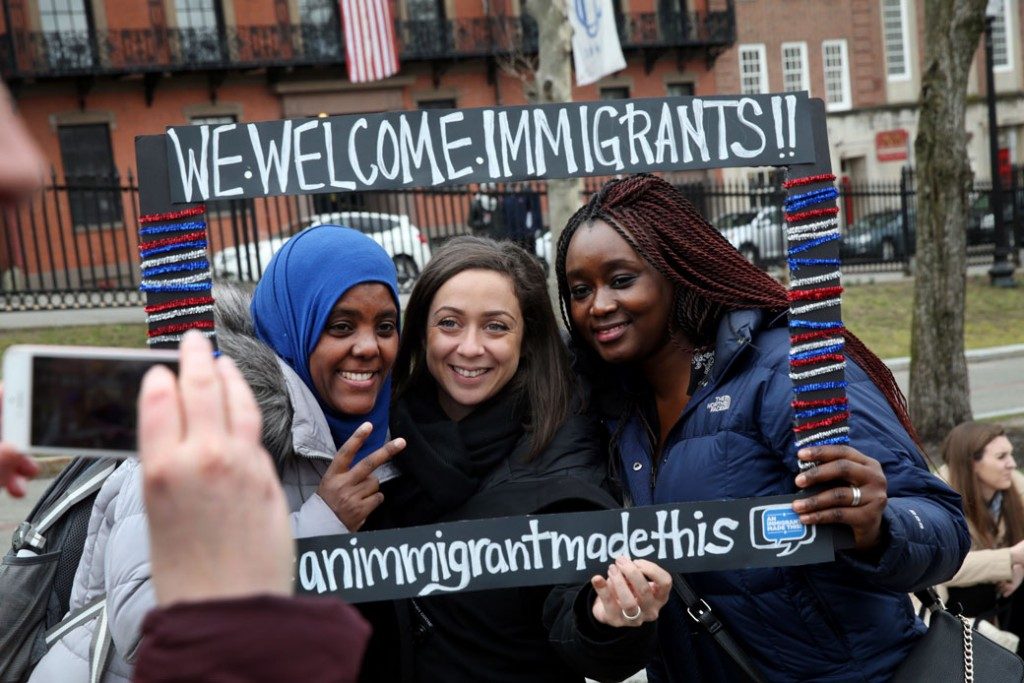
America has a long, withstanding history of anti-immigrant and anti-black rhetoric. This state of intolerance has harnessed an environment in which black immigrant communities are facing a double burden of their legal status taking precedence over their humanity. Before I begin, there are a few misconceptions I’d like to denounce, as well as clarify the use of certain terminology.
— An immigrant is a person who permanently settles in a country that is not of their original origin. Being undocumented does not negates one’s identity as an immigrant, as documentation or proof of citizenship is a means of recognizing a person as a member of a nation. A migrant is a person who moves from one location to another. However, this movement does not involve permanence. An asylum-seeker is a person who leaves their country of origin in search of protection from another country. In many cases, asylum-seekers are in danger of being persecuted due to their religion, sexual orientation or other identity markers. Lastly, a refugee is a person who has been forcefully displaced from their country of origin due to war, natural disaster or other circumstances.
— Immigration and Customs Enforcement (ICE) officers are not the same as police officers. There have been numerous cases where ICE officers have identified themselves as police officers, and legally, they are able to do so. In some cities, such as Los Angeles, the two terms have even become synonymous with one another. At times, the two agencies will work together, but play different roles in the case of enforcing the law.
Black immigrant communities are often left behind in discussions regarding borders, migration and what it means to be a citizen in the United States. One factor that may play a role in this is the lack of knowledge that these two identities are capable of intersecting. There is no one singular narrative that all black people can relate to, and the presence of this phenomenon is unreliable in discussing black immigrants and black Americans. It is not helpful to the struggles of black immigrants to conflate them with the struggles black Americans face, as they may not be interchangeable. Media portrayal of the black experience predominantly alludes to our relationship with the police, but ICE are also very much present in disrupting the lives of black communities.
In the media, black immigrants are often overshadowed by the plight of Latinx immigrants. According to the Center for American Progress, there are about 3.7 million black immigrants, and they constitute 8.4 percent of the United States’ immigrant population. Despite compromising no more than 9 percent of the immigrant population, 20 percent of immigrants who face detainment and deportation on criminal grounds by ICE are black. Given the numbers, a conversation surrounding the relationship between race and detainment bias is necessary. Black people in general are more susceptible to racial profiling from law enforcement at exponential rates, meaning black immigrants’ experience with state violence only grows when factoring in the existence of ICE.
21 Savage, a 26-year-old rapper raised in Atlanta, was detained by ICE on Feb. 3 following allegations by ICE that he had overstayed his visa. The rapper’s team had stated that he was brought to the United States at the age of 7. This is a circumstance many undocumented immigrants face as they’re brought to the United States as minors and are placed in circumstances where they lack agency, access and even knowledge of their own legal status. In a recent interview with The New York Times, 21 Savage detailed the stress and the mental fortitude needed while under ICE detention: “I think they really try to break you,” he said in reference to the law enforcement agency.
Fortunately for 21 Savage, he was released from detention on a bond with the help of his legal team. This is not the case for many black immigrants, as access to such privileges diminish when factoring in the element of socioeconomic status. Despite 21 Savage’s socioeconomic status, he is still in the process of obtaining legal status. This process has been made more difficult for him as prior history with the legal system has made him ineligible for Deferred Action for Childhood Arrivals (DACA) despite the fact that he was brought to the United States as a minor.
The purpose of bringing attention to the plight of black immigrants isn’t to negate the experiences of Latinx and other immigrant groups, but to reach a state of equity in which the struggles of all immigrant groups are addressed. An ethical fight surrounding immigration cannot be partial in the context of race. Black immigrants should not be criminalized for their legal status or race. This is not just because they contribute to the workforce or education system, but because as people, they should have access to basic human rights.


